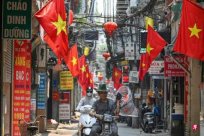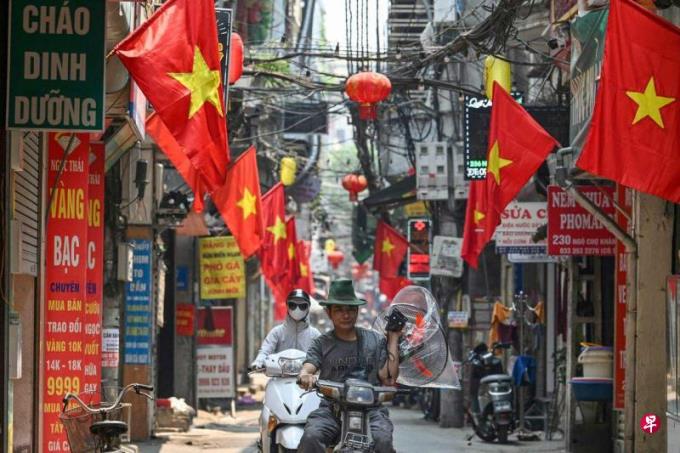
Zhang Meilan, the richest man of Vietnam's largest scam -laundering case, was sentenced to death on April 11 this year, causing a sensation.The Zhang Meilan case was not only a trial of the crime of white -collar workers, a fire that pushed Vietnam's anti -corruption movement to a climax, but also reflects Vietnam's collusion between government and business, political forces, and power struggles.
In 2012, Zhang Meilan, chairman of Vietnamese real estate Development Merchants Wan Shengfa Group, was helped by the government to merge the three small and cash shorts to Saigon Commercial Bank.This added to the commercial empire of Zhang Meilan, the legendary figure of Vietnam, but also laid a foreshadowing for her in jail.
Vietnamese law stipulates that no one shall hold more than 5%equity of banks, but Zhang Meilan has mastered 91.5%of the shares of Saigon Commercial Bank through a relative and empty shell company.She falsely reported the value of the mortgage and fraudulent business plans to allow banks to provide herself a large amount of loans, resulting in bank losses more than 4.33 trillion in Vietnam Shield (about S $ 23.2 billion).She has also bribed the staff many times to escape the government's review and cover up the problems that had been discovered. The Director of the Supervision Bureau Du Shiren received a bribery of $ 5.2 million (about S $ 7.07 million).
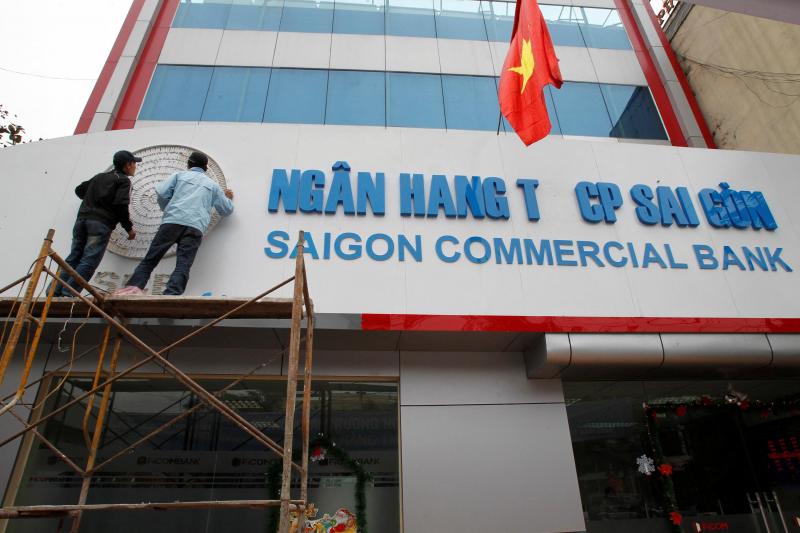
The awareness of anonymous Lin (73 years old) said that Vietnam has a large number of young and educated population, and the government is pro -business. Therefore, after experiencing this turbulence, I believe it will be a deep -potential investment destination.
However, the Zhang Meilan case is far more than a white -collar crime, and behind the complex government and business collusion and political struggle, not everyone is optimistic about the role of Zhang Meilan.Professor Zachary Abuza, a professor of Southeast Asian politics, told the United States CNN (CNN): "The Communist Party hopes to use the Zhang Meilan case to show the role of anti -corruption, but they cannot cover them intentionally ignoring and allowing large -scale large -scale large -scaleThe fact of bribery ""
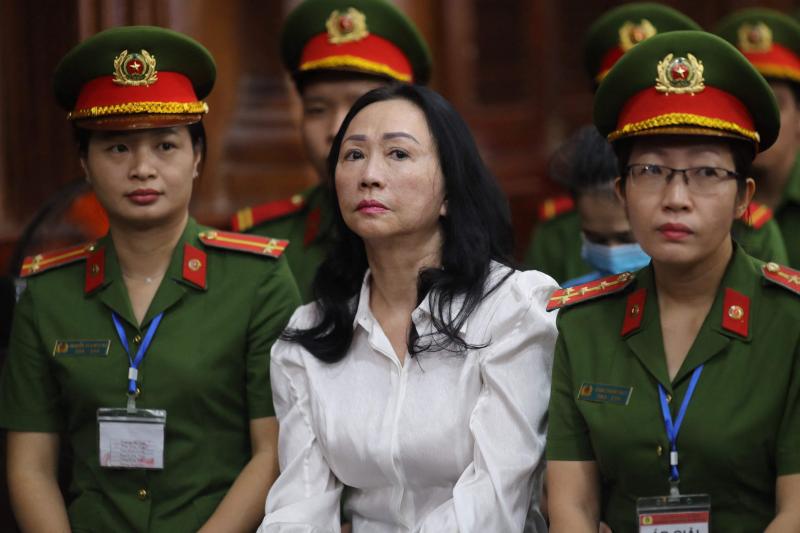
The officials and business do not distinguish between local forces to be businessmen to protect umbrellas
Zhang Meilan, who was born in Guangdong, lived in the fifth district of Ho Chi Minh City, where Chinese people gather.When she was studying, she sold cosmetics with her mother. Later, she came out to make small traders, and established Wantong Haofa Group in 1992.
At that time, the district committee secretary of the fifth district of Ho Chi Minh was Li Qinghai.Li Qinghai's wife Zhang Shixian comes from a highly revolutionary qualification Vietnamese family. With such a background blessing, he is promoted to the secretary of the Ho Chi Minh Municipal Party Committee.
All land belongs to Vietnam of the country. It is almost impossible to build a huge real estate empire without political elites.It is rumored that Zhang Meilan and Li Qinghai have established close connections. As Liqing's sea steps rise, Zhang Meilan's career has also entered a fast track of development.
This can be seen slightly during the hair of Wan Sheng's hair.In 2006, after Li Qinghai entered the Political Bureau of the Communist Party of China, Wan Shengfa's accumulation of wealth was getting faster and faster, becoming a giant enterprise with a total capital of billions of dollars.From the land obtained by the demolition of poor houses to multiple famous hotels and shopping malls, to the land of the golden location in the center of Ho Chi Minh, Zhang Meilan has fallen into Zhang Meilan.
Carlyle Thayer, an honorary professor of political science at the University of New South Wales in Australia, said in an interview with Lianhe Morning Post: "Zhang Meilan and Li Qinghai have profound origins.
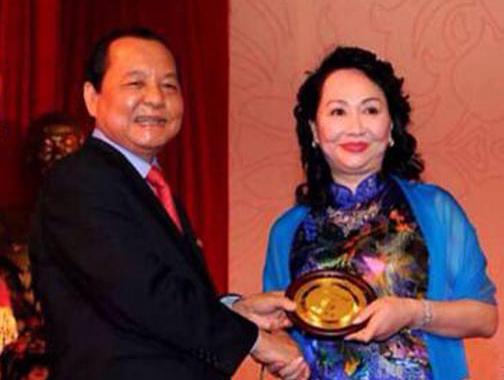
The Emperor Tian Gao Yuan Zaijiang's official "Saigon Misquat Party"
Although Li Qinghai, who is 74 years old, has retired in 2016, Saye pointed out that he still has a great influence on Ho Chi Minh City after his retirement.
Ho Chi Minh City, which is far away from the capital Hanoi, has become the fertile soil of interest groups, which makes Hanoi uneasy.
Ho Chi Minh City, formerly known as Saigon, has always been the engine of Vietnam's economy.When Vietnam promoted "innovation and opening up" in 1986, the city renamed Ho Chi Minh City was active again, and did not rely on the central government's financial subsidies to have great autonomy.Due to the incomplete legal system and lack of supervision, many officials associated with businessmen, giving support and facilitating to help businessmen to send their families, and then collecting rebates from them to form a similar oligopoly group.
Li Qinghai is one of the beneficiaries in this wave.Former US diplomat David Brown, who had worked in Vietnam for many years, published an article on the online media "Asia Sentinel" that Li Qinghai had a good relationship with some central leaders and was arrogant in the local area.According to Brown, the local people of Vietnam also took the nickname to Li Qinghai, saying that he was the "lord" and "black party boss" of Ho Chi Minh City.
The trial of Zhang Meilan is actually the siege of the vested interest group of Ho Chi Minh City, and this siege operation has been launched a few years ago.Punishing Li Qinghai is one of the earliest signs.
In March 2020, the Political Bureau of the Central Committee of the Communist Party of China traced back to Li Qinghai's responsibility and disciplinary sanctions due to the violations of a new city development.Many former subordinates have been sued afterwards.
Sae believes that this is a pragmatic decision made by Ruan Fuzhong, the leader of the General Secretary of the Communist Party of China and the "melting furnace" movement of the large -scale anti -corruption operation of Vietnam, to maintain political stability."In short, this is to let the sleeping dog continue lying down (meaning warning the other party not to cause trouble)."
Subsequently, Ruan Fuzhong visited Ho Chi Minh City unusually in September 2022. One month later, Zhang Meilan was arrested.This is considered to be the authority of the Vietnam to reiterate the authority to the south and strengthen the control of local business activities.
Brown analyzed the Broadcasting Corporation (BBC), Ruan Fuzhong and the party allies are trying to re -control Ho Chi Minh City, or at least prevent Ho Chi MinhThe city is more and more centrifugal with Hanoi."Before 2016, the Vietnam Communist Party ruled Saigon almost the Chinese black hand party. They appeared on the surface that they obeyed the government, but at the same time, they squeezed a lot of resources and wealth from this city."
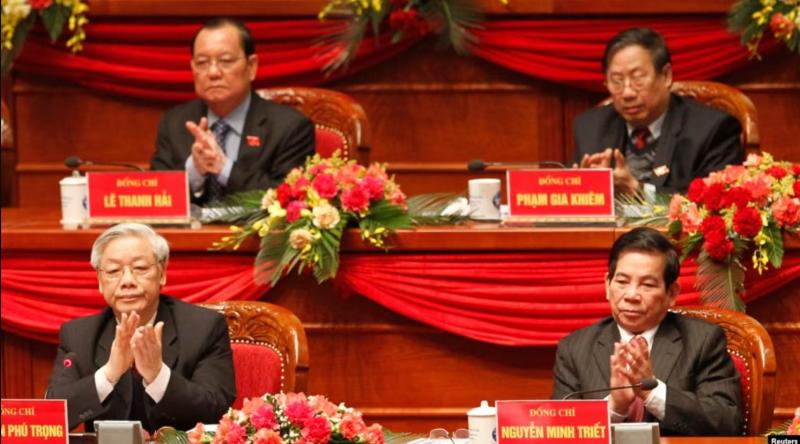
The Central Committee of the Vietnam Communist Party is not the first attempt to overthrow the interest group of Ho Chi Minh City.Before the arrest, Zhang Meilan was accused more than once, but she successfully escaped.As early as 2014, Zhang Meilan was charged with 1 million US dollars to bribe others in order to obtain a project in Hanoi Port.
Researcher Ruan Qingjiang, a researcher at the Institute of East Eastern South Asia, Singapore, pointed out in an interview with Lianhe Zaobao that Zhang Meilan was not punished at that time, perhaps because the Vietnam Communist Party could not shake the political interest group of Ho Chi Minh City at that time.
Ruan Qingjiang said: "The trial in 2014 was carried out in Hanoi. All senior personnel involved in the case lived and worked in northern Vietnam.She can be protected by some local politicians.
Zhang Meilan's case or the beginning is expected to have more leaders of Ho Chi Minh City being investigated
In the early days of anti -corruption, most cases occurred in northern Vietnam.With the development of the movement, in the recent major scandal of the rope, it includes the party committee secretary or governor of the north and south provinces such as Laogang, Houjiang, and Guangning.
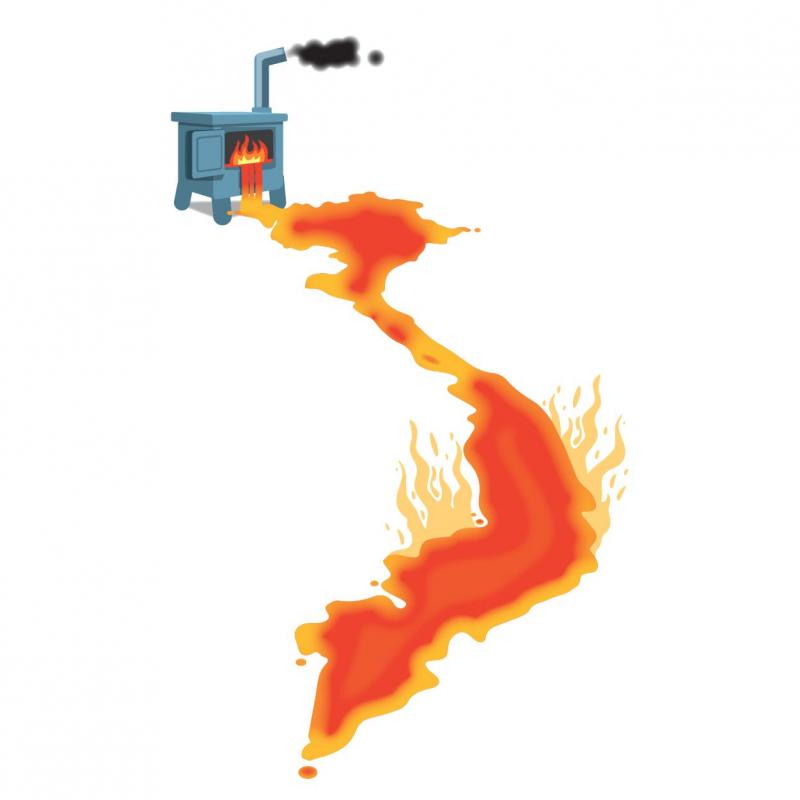
Zhang Meilan's case means that this fire is finally burned to Ho Chi Minh City.These all marked the expansion of Ruan Fuzhong's power.Ruan Qingjiang said: "After Ruan Fuzhong appointed his assistant Ruan Wennian as the secretary of the Ho Chi Minn Municipal Party Committee in October 2020, he gradually started to liquidate officials related to the Zhang Meilan case."
The Zhang Meilan case is likely to start, and more former Ho Chi Minh City's former and current leaders may be investigated, disciplinary sanctions, and even prosecution.
The "four pillars" in politics have burned two
Vietnam's anti -corruption actions are not only aimed at financial corruption, but also pointed their goals to politicians.Former President Wuwen Awards and former President Wang Tinghui.Vietnam's "four pillars" have fallen, and the country may fall into a political turmoil.
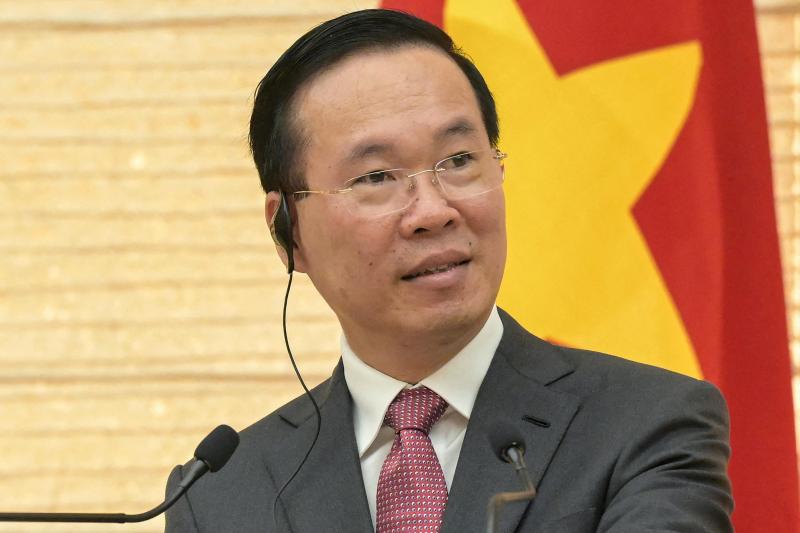
Vietnamese politics has four pillars or four -driving carriage, which are the General Secretary of the Central Committee of the Communist Party of China, President of the Communist Party, President, Prime Minister and President of Congress.However, during the decades after the Vietnam War and after the war, such power structure did not exist.For a long time, Li Zhu, the general secretary of the leader of the war, is the actual supreme leader. President Ho Chi Minh is more symbol of power, and Prime Minister Fan Wentong plays North Vietnam's diplomatic spokesperson.
After the end of the war and the national unification of about 10 years, Vietnam ushered in reform and opening up.At that time, Ruan Wenling, who belonged to the main character of the young reformist, served as the general secretary in 1986 and gave the Prime Minister a more important role in order to deal with the influx of foreign investment and economic policies after opening.The economic achievements brought by reform and opening up have prompted Vietnam to start in line with international standards, which means that Vietnam must integrate into the international community and follow certain specifications. Therefore, more legislation and regulations need to deal with various economic problems that have never occurred in the past.It is getting more and more important.
In 2006, the top ten of the Vietnam clearly proposed to promote the reform of the political system. Ruan Fuzhong, then chairman of the parliament, gradually expanded the scope of the parliamentary legislative agenda and further enhance the status and role of Congress.The chairman of Congress began to slowly become a member of the core power structure and formed the four pillars of the current Vietnamese politics.
Keep the north -south balance between the four pillars
The communist countries are mostly centralized countries, but one characteristic of the four pillars of Vietnam is that power is decentralized.As a result of historical factors, Vietnam's politics has an unwritten rule, that is, to maintain the political balance of North and South, so there is a certain degree of north -south balance between the four pillars.Generally speaking, the General Secretary of the Vietnam is responsible for party affairs and ideology; the prime minister is served by the southerners and is responsible for economic construction and national administration. The President of the State President is held by people in the central region, which is more symbolic.
This structure plays a certain balance role and is also a sign of internal democracy, but this does not mean that the political power of the four pillars is equal.Ruan Qingjiang said that this is actually a quite unstable power sharing process, because the personality traits of different leaders will affect the authority of his position.
The duties of the four pillars of Vietnam seem to be complementary, but some of them have criticized the four power centers that need to spend more time, money, and resources to manage, providing corruption to provide breeding space.
Ruan Qingjiang believes that the recent incidents in Vietnam's politics show the disadvantages of this power sharing structure."At present, the anti -corruption movement is in the hands of the party. Only the party -controlled department may order the business connection of any family and office involving the family and the chairman of the parliament (Wang Tinghui) ... but if there is no party instructions, or even evenIt is Ruan Fuzhong's own decision, and no one can move other 'pillars. "
The fire of "Furnace" is burned and the high officials are raised.
Vietnam's "furnace" anti -corruption campaign has been burning and strong in the past two years. Two national chairman resigned one after another.Recently, it has also fallen.
The furnace movement was initiated in 2013 by the General Secretary of the Vietnam Communist Party in 2013. It has exceeded 10 years. During the period, hundreds of political and business circles, including local government officials and corporate executives, were prosecuted, sentenced or forced to resign.
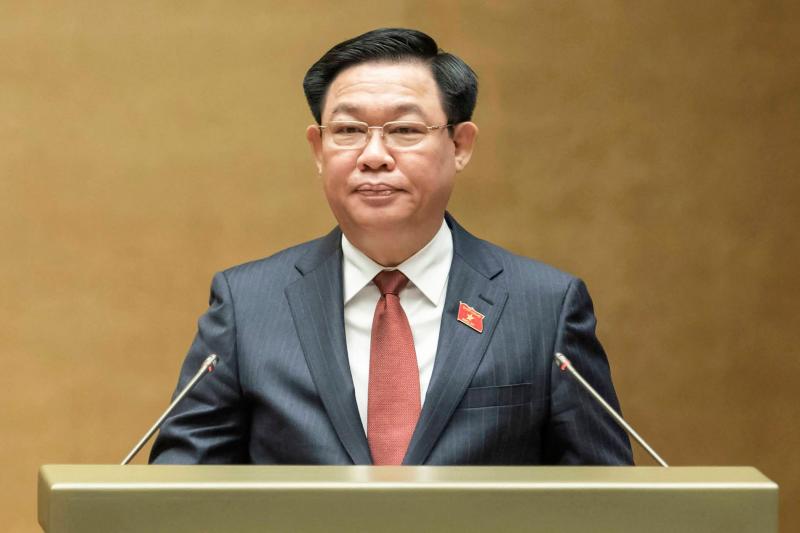
The Nikko Asia reported in December 2020 that a meeting report of the Vietnamese Central Anti -Corruption Guidance Committee at the time pointed out that since its establishment in 2013, more than 130,000 members and government officials have been disciplined.
In 2018, Ding Luosheng, former member of the Political Bureau of the Central Committee of the Communist Party of China, was charged in the Corruption Case of the National Oil and Gas Group. It was sentenced to 18 years in prison. It was the first highest level to be sentenced to corruption in the past decade in the past decade.Officials.The person who stepped down by the furnace movement was then higher and higher, including in January 2023, Ruan Chunfu resigned the illegal behavior of his officials during his time as the prime minister, and in March and April this yearAlso resigned because of their subordinates and Wang Tinghui, who resigned because of their subordinates.
Yue Communist Party promised anti -corruption without exception and no restricted area, and the resignation of Wu Wenzheng, Wang Tinghui and others did reflect this.Some political observers believe that this is the embodiment of the accountability system, which also shows that Vietnam's anti -corruption efficiency is getting higher and higher, but critics pointed out that anti -corruption movements are just a means to stifle the party's objection.
Scholars: The invalidation of the corruption of the Communist Party and the failure to restore the people's trust in the government
Alexander Vuving, a professor at the Asia Pacific Security Research Center in Daniel, told the United Zard that it has proved that Vietnam's anti -corruption movement is invalid.
He said: "The anti -corruption movement has lasted for more than ten years, but the phenomenon of corruption has not been significantly reduced. This movement failed to restore the public's trust in power.It's their way of operation. "
Ruan Kejiang, a visiting researcher at the Vietnamese Research Project of Yusov Ususov in Singapore, said that the anti -corruption movement is a double -edged sword; it shows that the official determination to eliminate corruption will help restore people's government to the government's government.On the other hand, many senior officials have been implicated, and have a negative impact on the economy and society. It has also caused the public to suspect whether the anti -corruption movement that has been carried out for more than ten years can effectively resolve these disadvantages.


